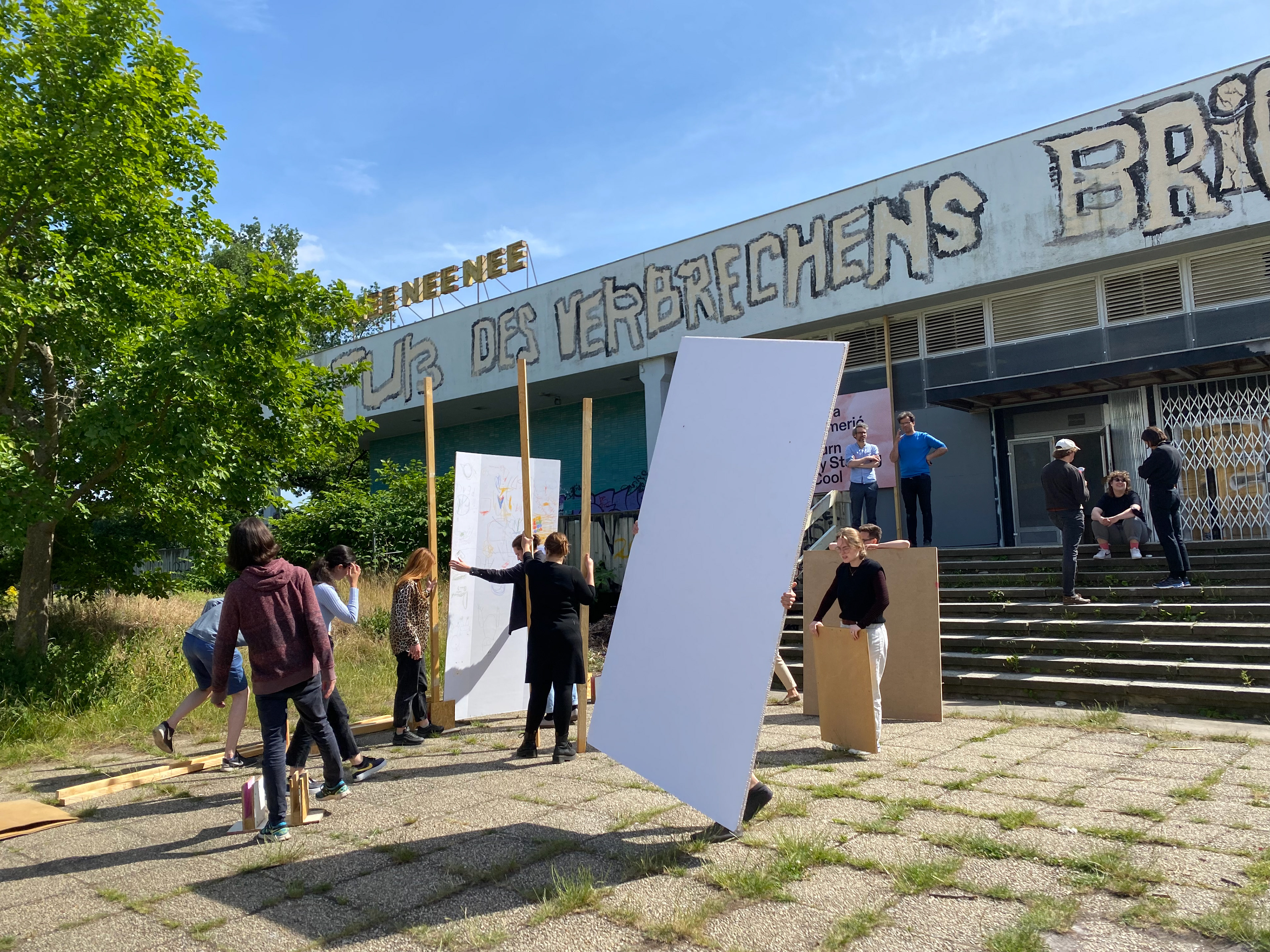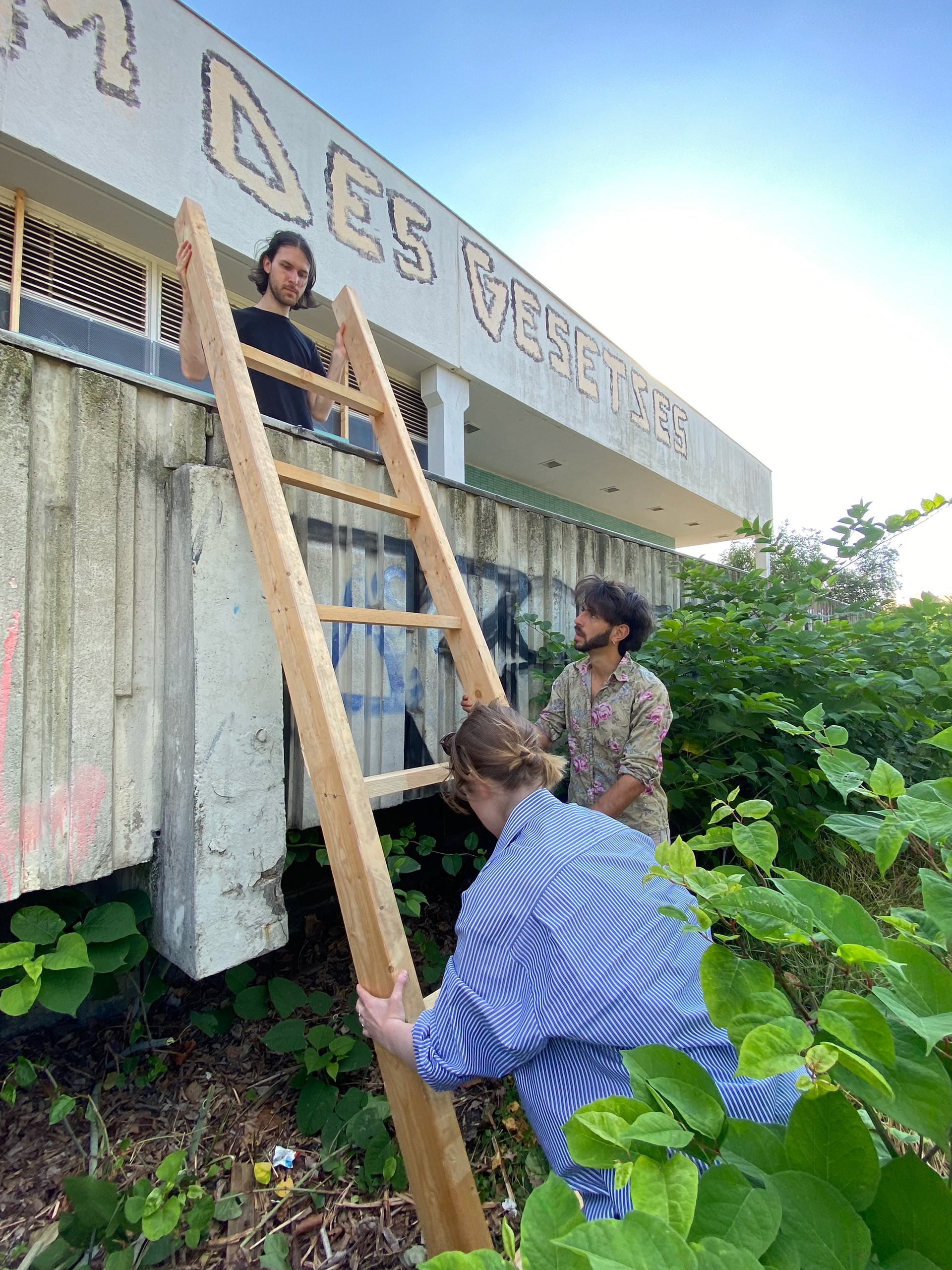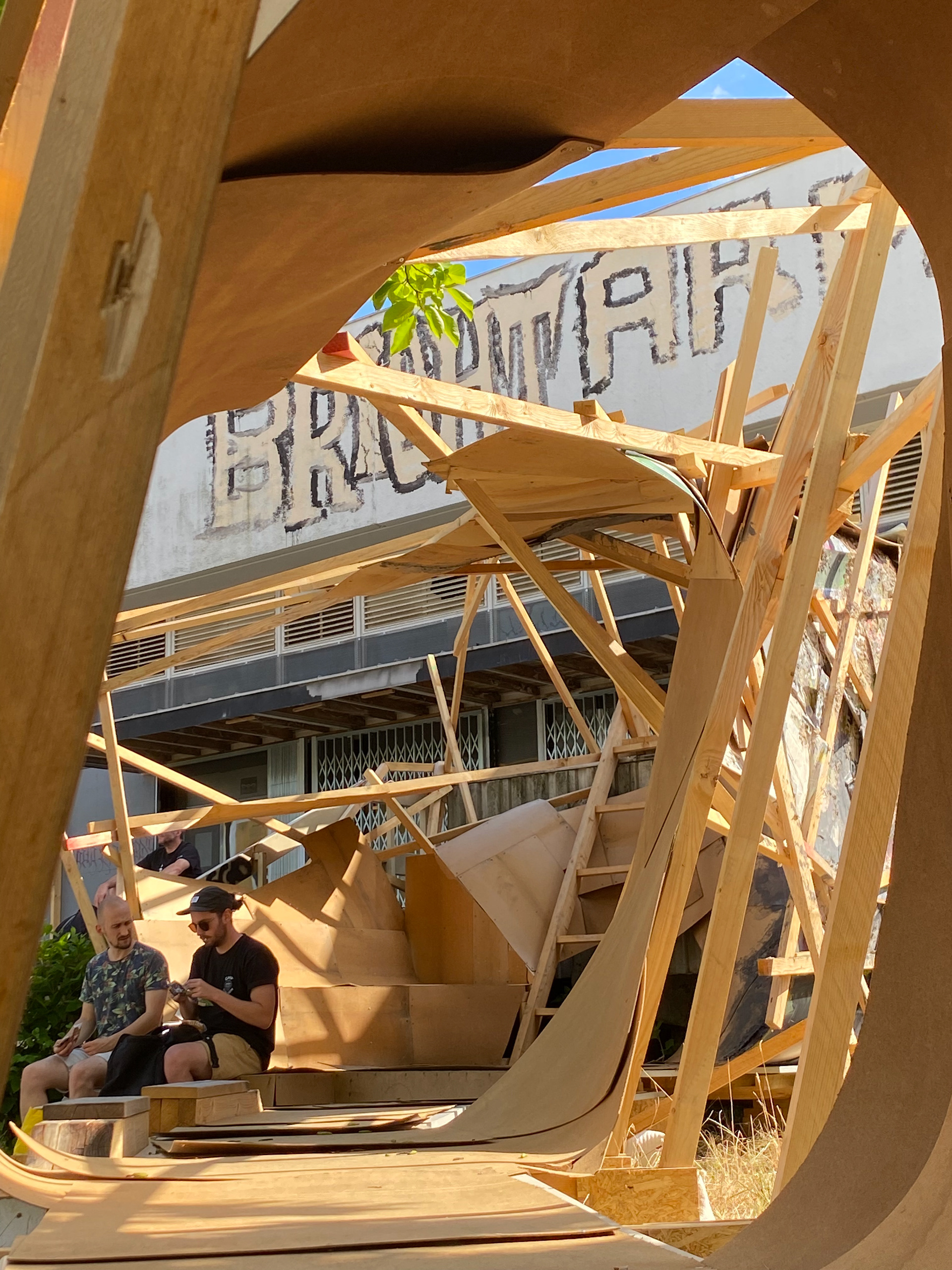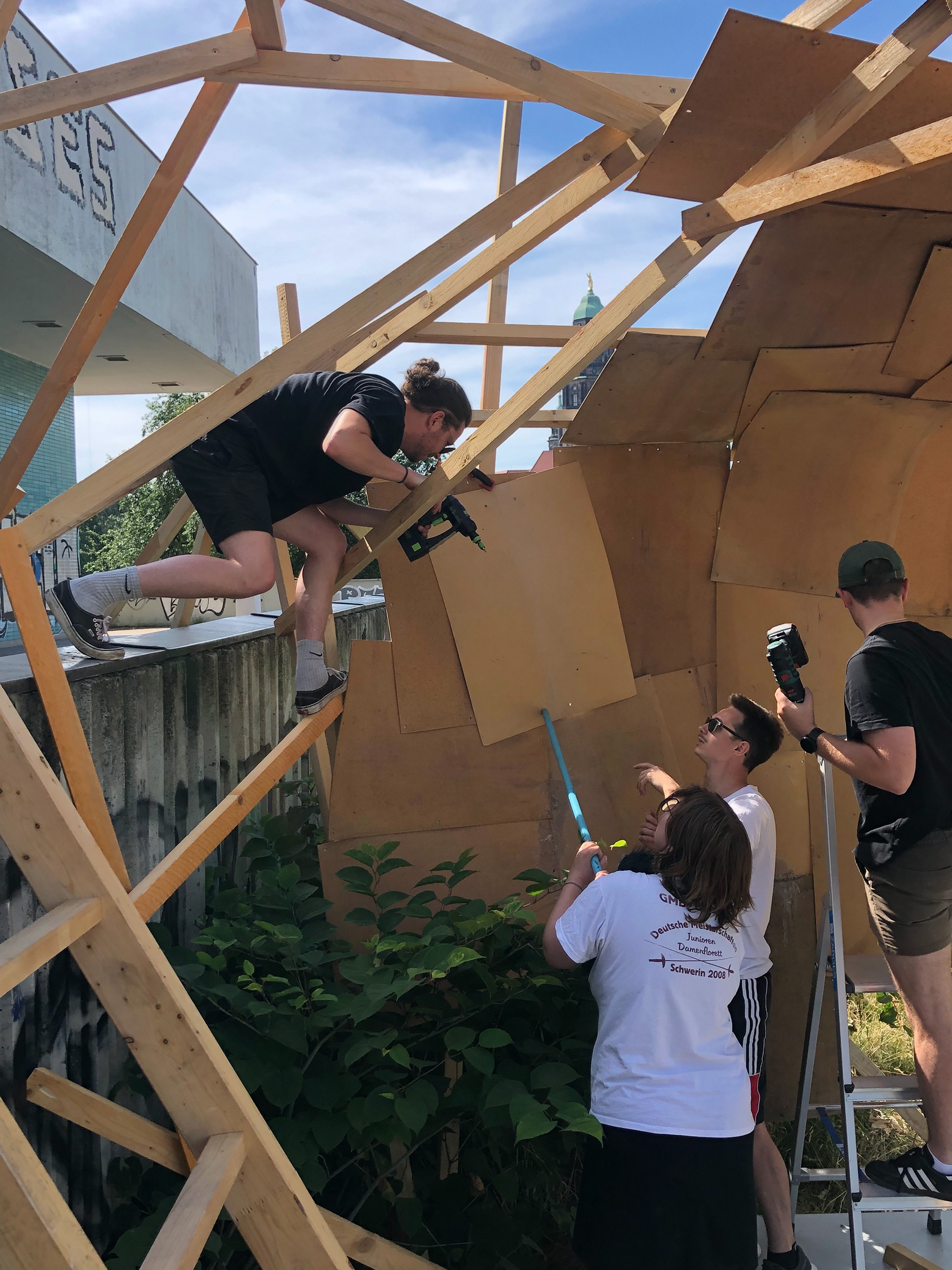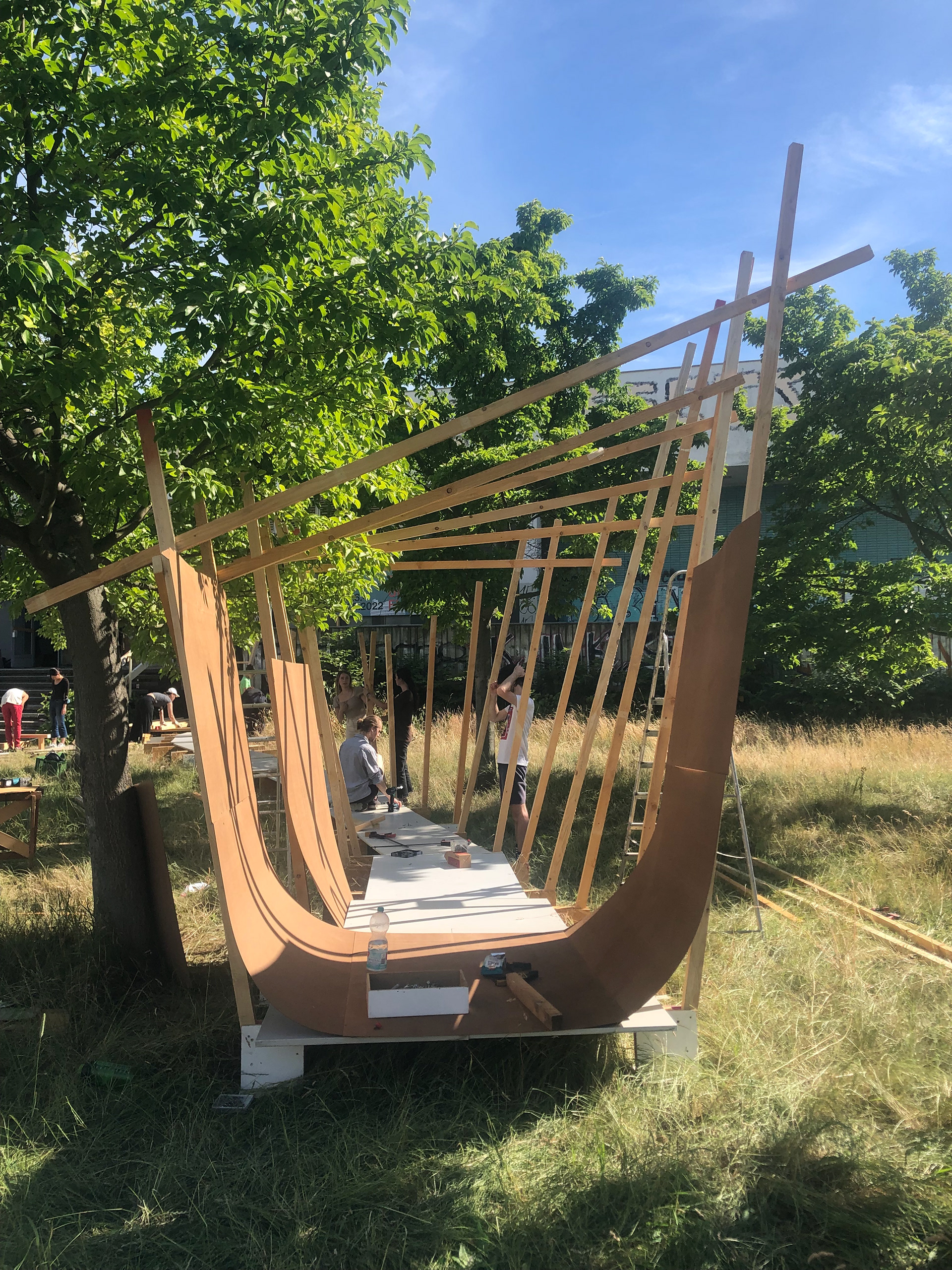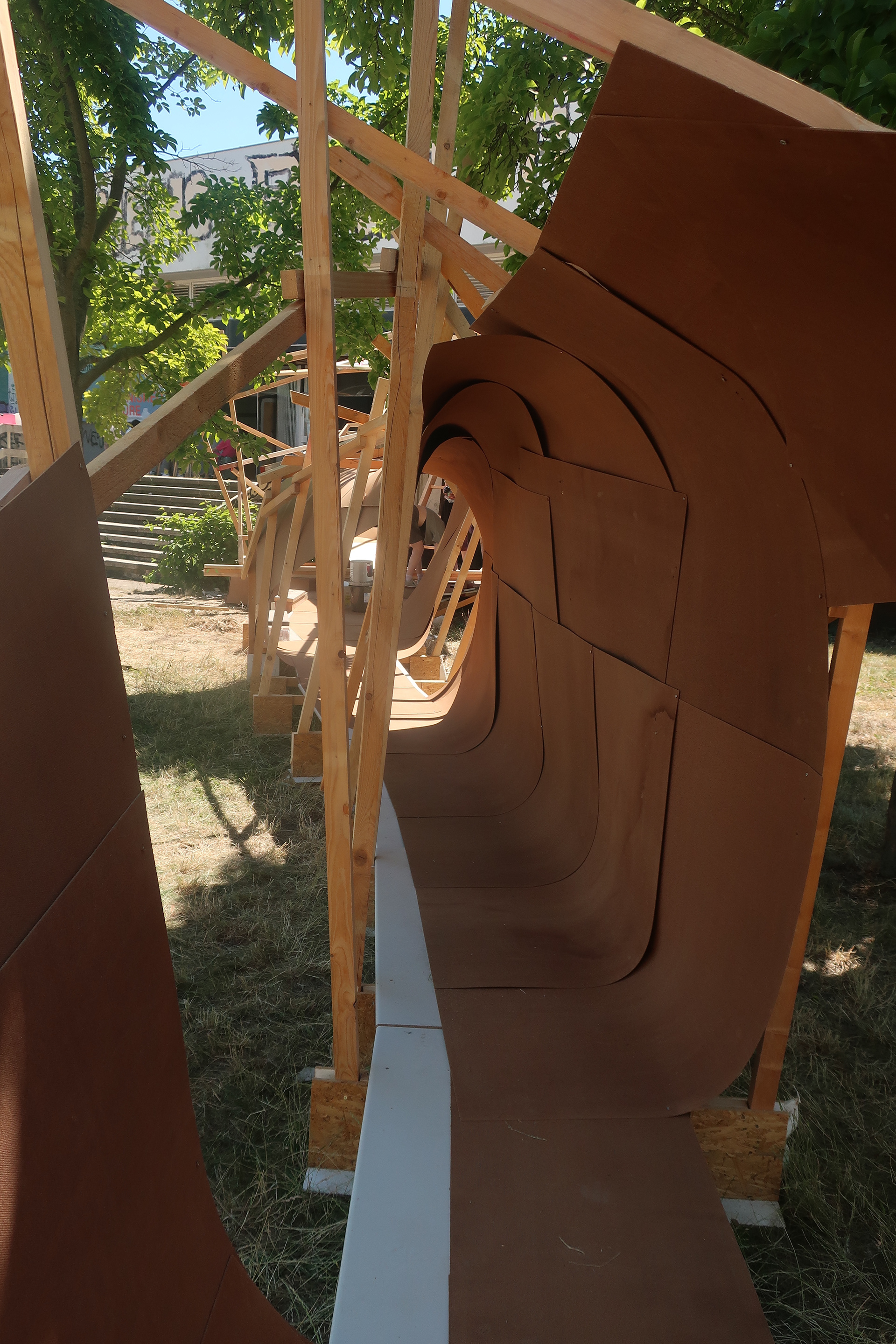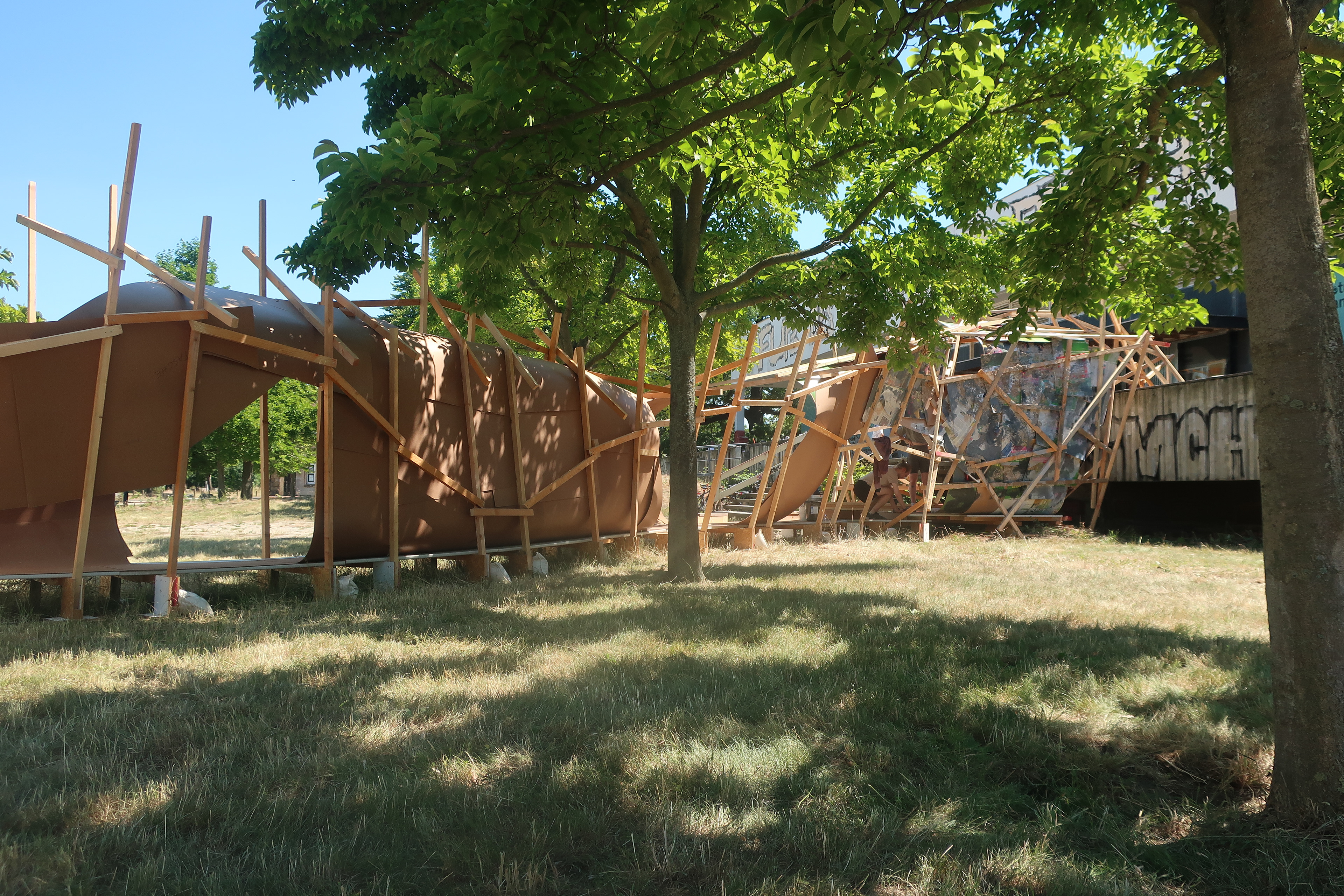This project, commissioned by the Contemporary Art museum of Dresden - Kunsthaus Dresden, and in collaboration with Kadija de Paula and Chico Togni came to life after a sequence of coincidences. The Museum invited them to work on a thematic that it was really present in my life, the so called “Garten Vereine”, or even more specifically “Schreber Garten”, both for me living in one at that time (and part time now) and also for doing artistic works that connected to the subject, I was invited to be the eyes and hands of project, as sadly the other artists, had to stay in Brazil.
It consisted on a mixture of unorthodox building techniques taught through an experimental workshop book, the construction of two rocks, one in the Museum for an exhibition, and one in the Museum’s own Garten-Gallery.
Specially the stone build in the Garden worked as a milestone for a future, blocking the entrance to the shed’s tool room, after having emptied it completely from decades of dirt, rests of objects and tools of doubtful utility.
Lastly I’ve created many mini installations with all this artifacts of Garden and construction work through the whole museum, but specially in the museums pavilion inside the patio.
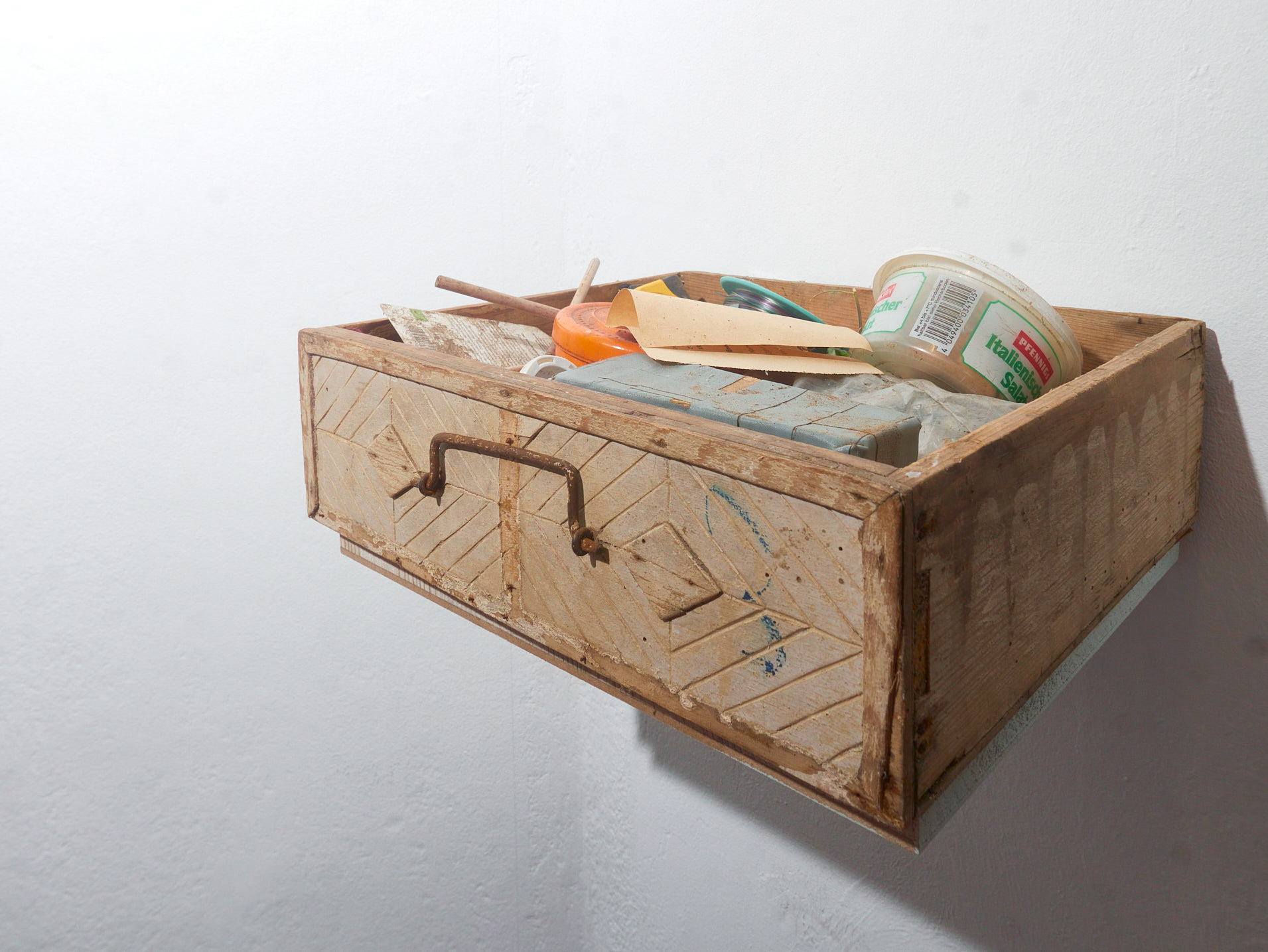
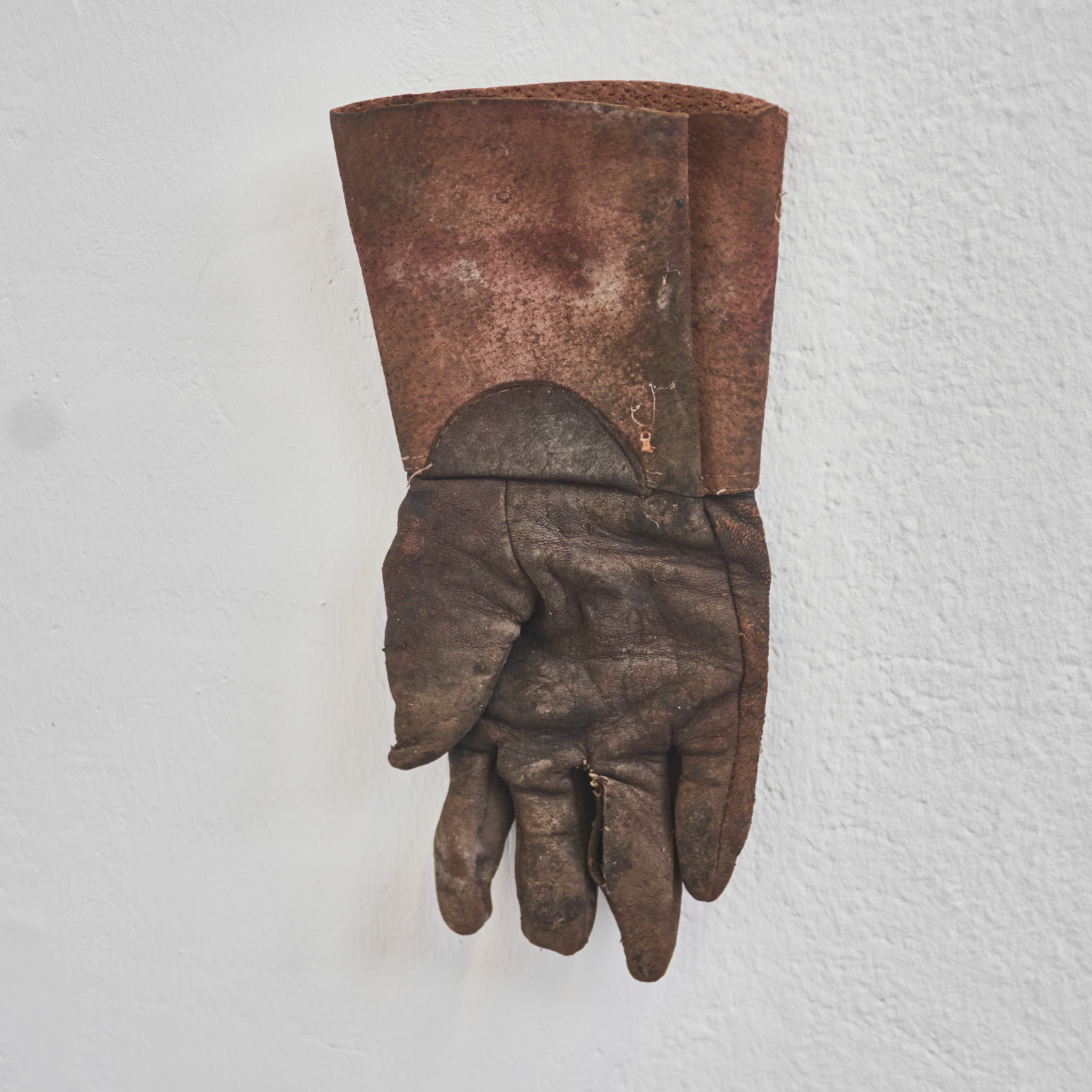
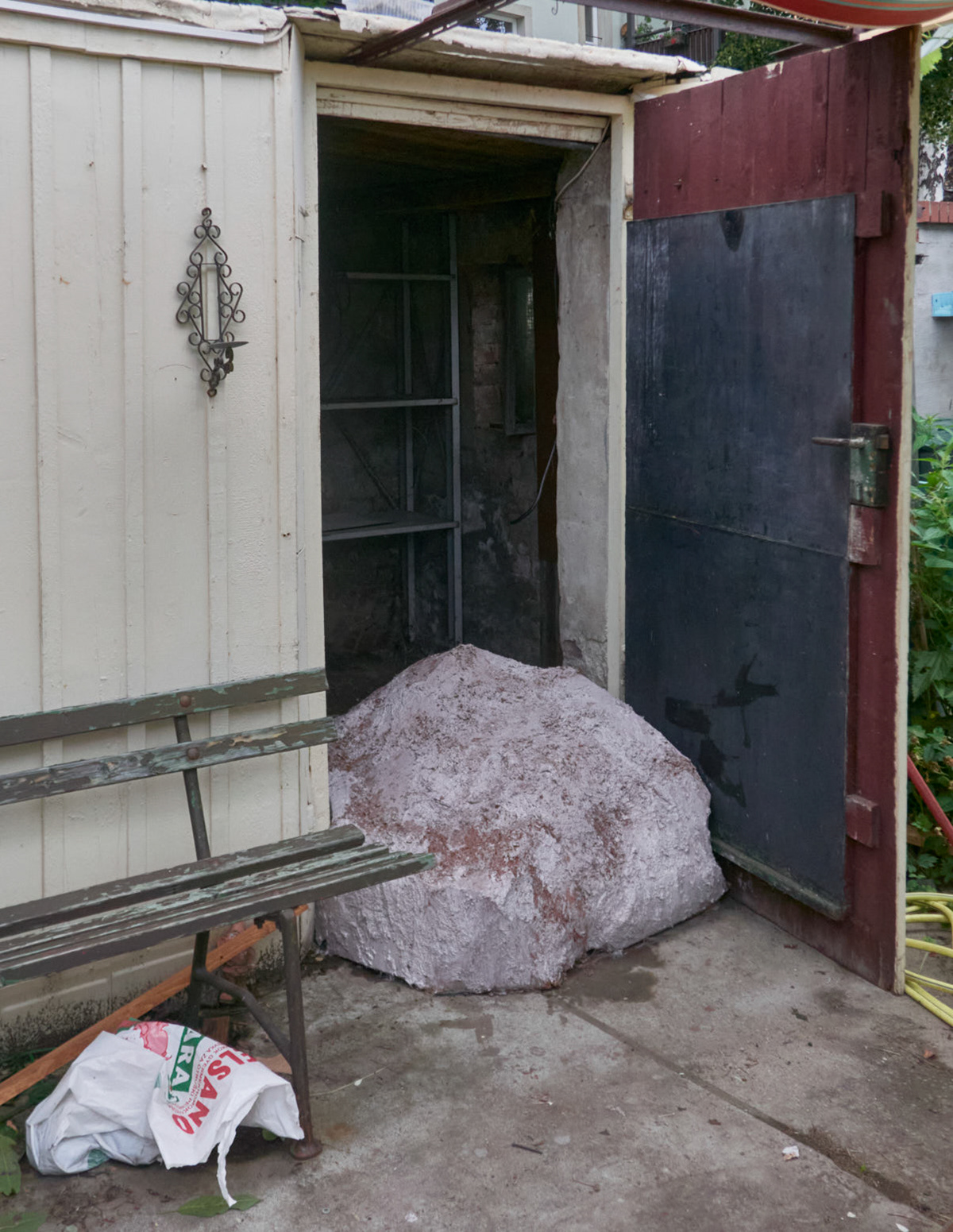
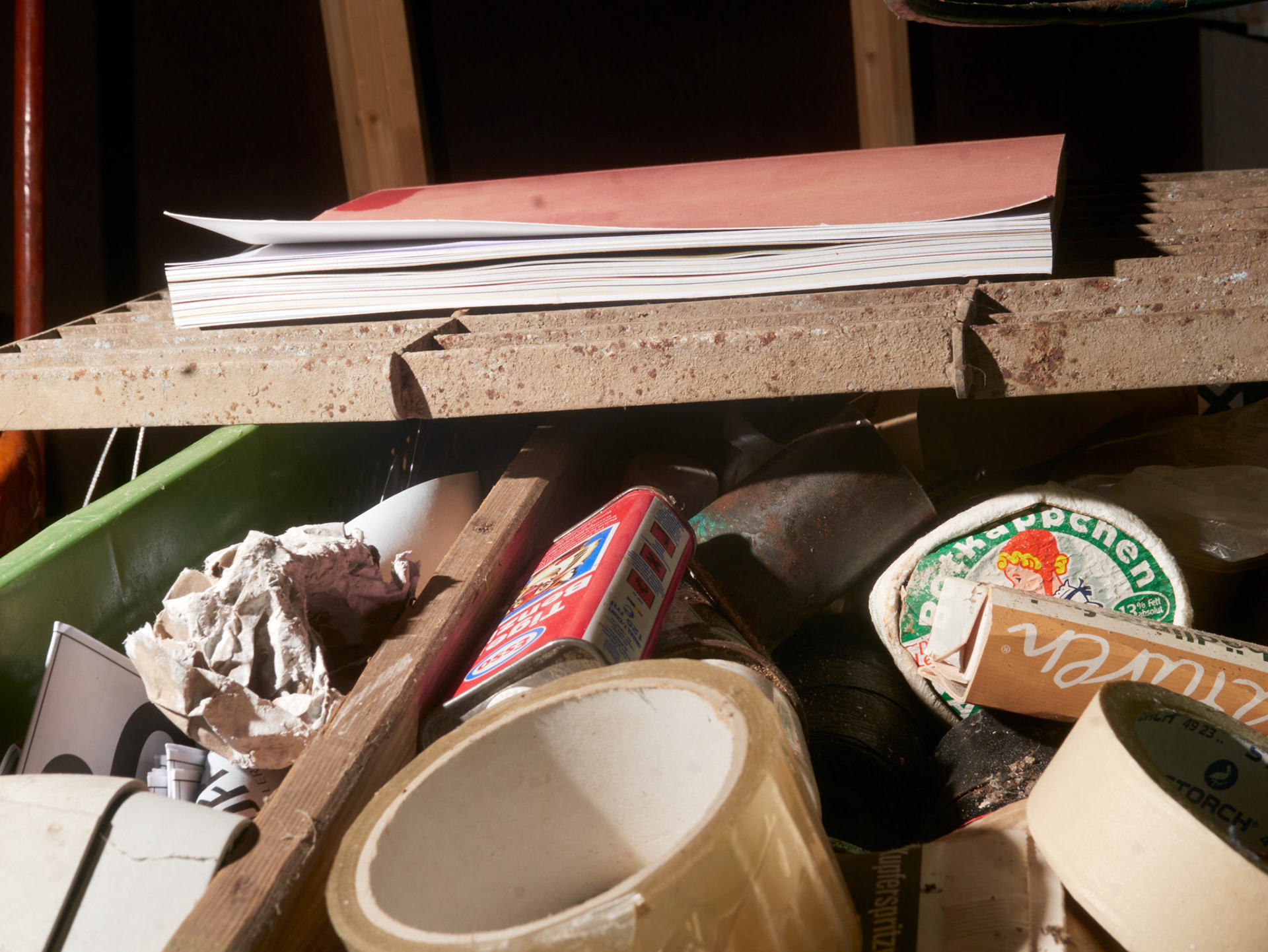
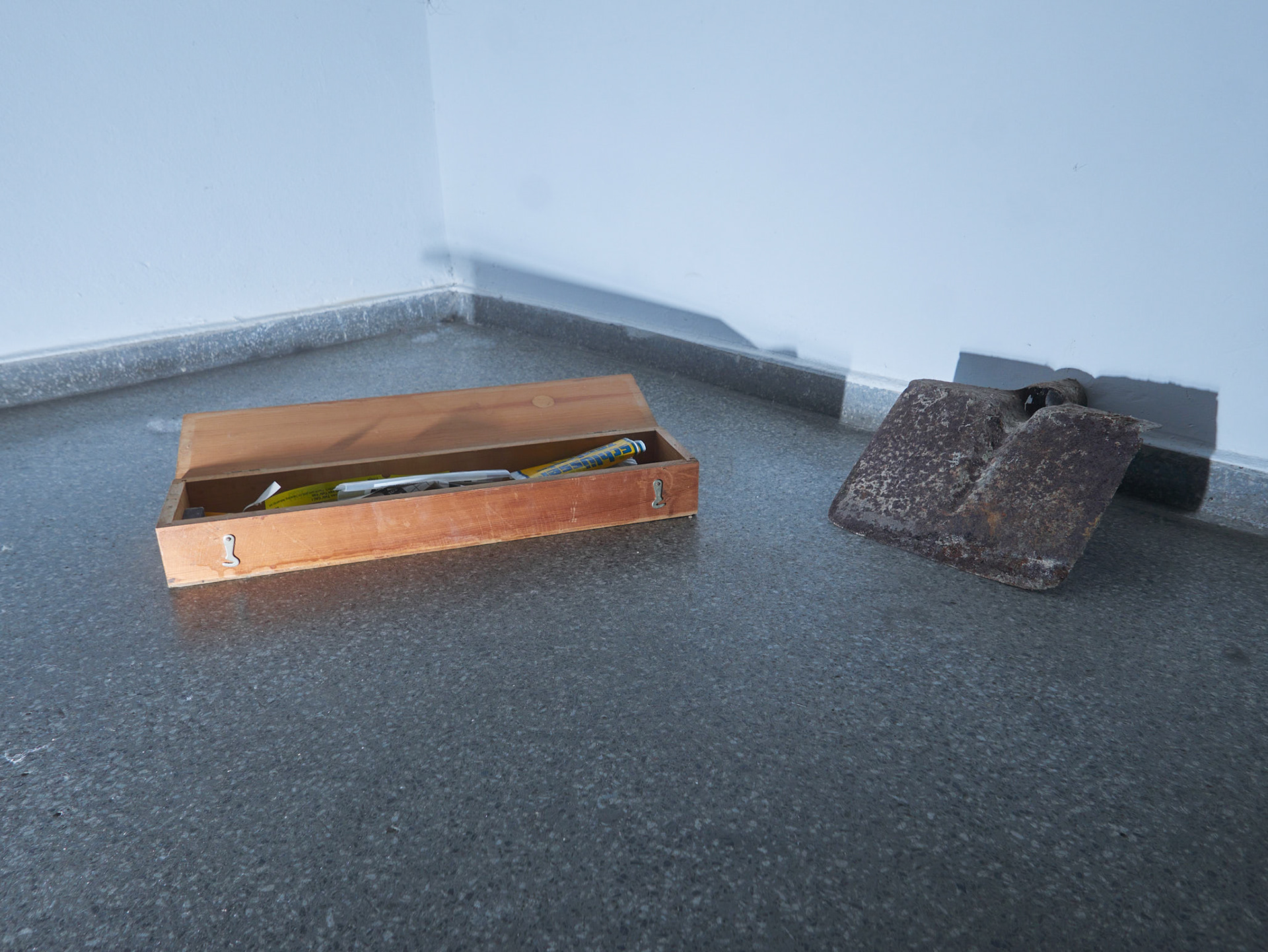
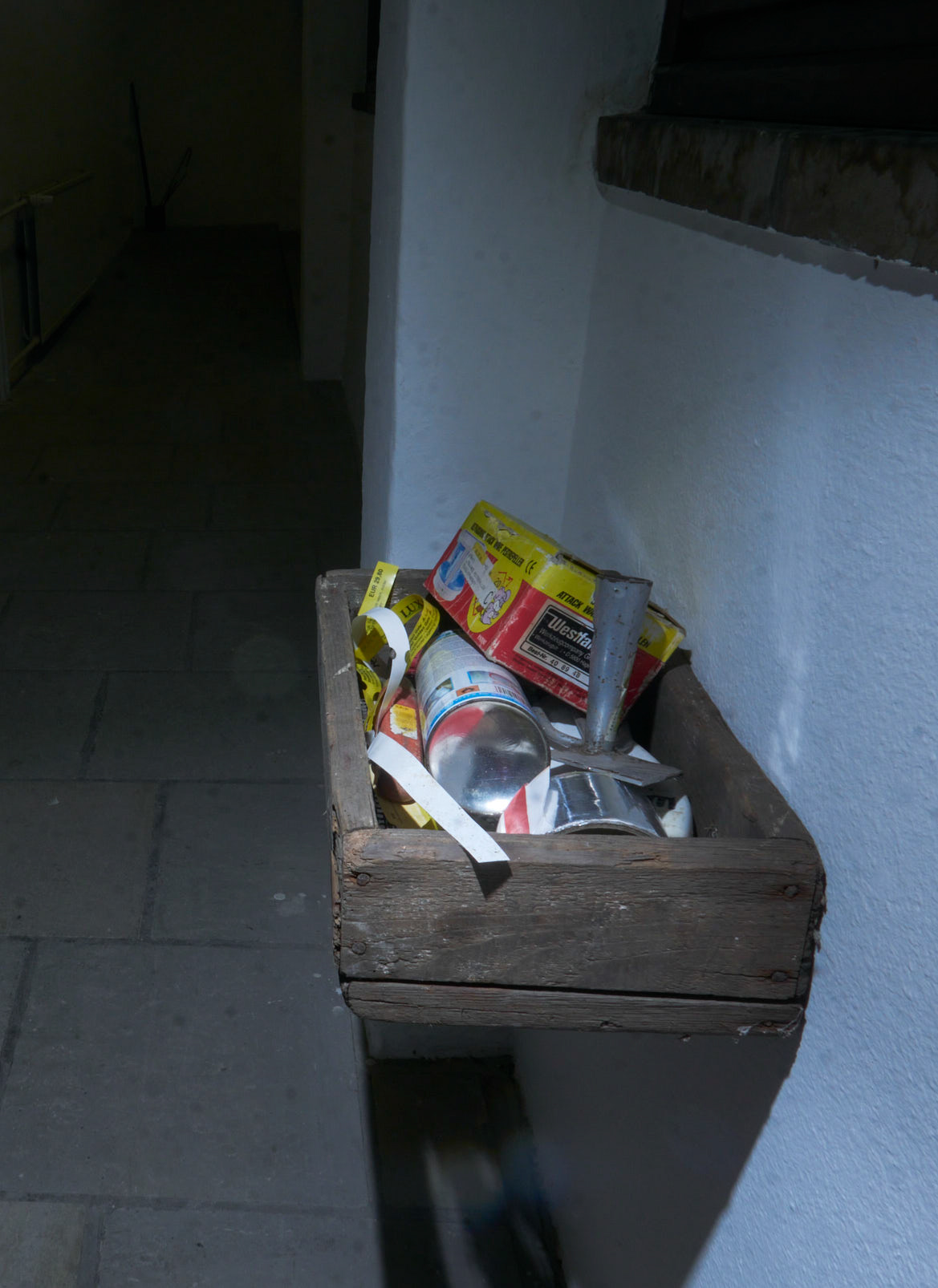
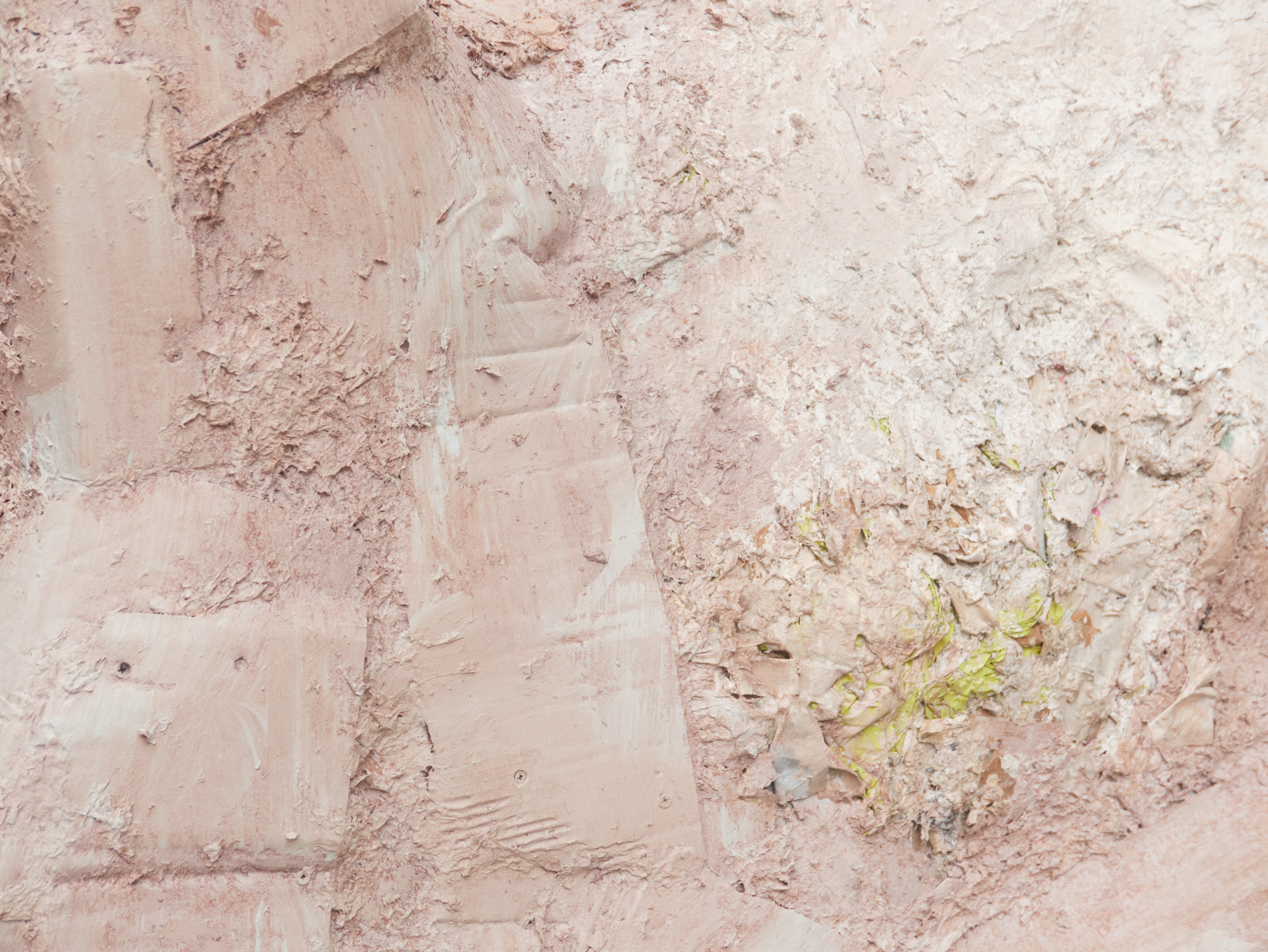
THE FUTURE OF MODERNISM SUCKED
is the second part of the collaboration between Fell, Kadija, Chico and the Kunsthaus Dresden. A reflection upon precarious and temporary structures built within and in contrast to a modernist architectural context. It is a fictional and functional intersection of art and architecture developed by the three artists, the supervision of Prof. Uwe Kirst, the dedicated power of his 20+ architecture students and the facilitation of Robert Thiele from Kunsthaus Dresden. .
This artistic intervention planned on the theme of "ReUse" brings the three Brazilian artists as part of the art festival CAMPUS KANTINE. The idea is to inspire, provoke, and guide the students from TU Dresden to imagine, design and build a structure on the grounds of the former Robotron Canteen using various found and recycled materials, including some from a previous installation, developed in the same grounds in spring 2021 by Henning Haupt.
In May 2022 the project started as a series of online workshops organized by the Kunsthaus Dresden and looking for a long term engagement between the students from Uwe Kirst’s course “Building Sustainably” with the artists, who were presenting techniques and materials guided by the question of how to build with found materials? This discussion unfolded to conceptual implications of why build with recycled, or found materials and how this is not new but more relevant than ever. As a matter of fact, precarious and temporary structures have been built for centuries out of necessity, availability of materials, or pure tradition. What can we learn from indigenous, non-western, non-colonial building perspectives? What can we build together without replicating the concrete modernist failure?
The conditions for architecture have changed: Building is the main cause of global pollution, depletion of resources and energy consumption from non-renewable sources. More than 50% of the annual waste produced in Germany, 90 % of domestic raw material extraction and 40 % of global CO2 emissions: This is the balance sheet of the building industry. Architecture in the 21st century can no longer be built at the expense of the environment and future Generations. First and foremost, of course, reducing the consumption of materials and resources. A solution with the footprint is direct recycling ("re-use"). This means that materials or components that are no longer required are used again at another location. Destruction, dismantling or disposal can thus be dispensed with. However, this means that we are at the very beginning of a process of architectural knowledge, because in order to create a good and sustainable architecture from reused architecture can be created from reused components ("post-use building materials") we need not only solutions for technical and process-related problems, but also a well-founded and process-related problems, we also need a well-founded examination of this subject with this matter.
